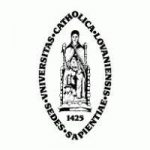项目介绍
PhD Programs
The start of your PhD program launches your journey to a career in business academia.
Students in our PhD programs are encouraged from day one to think of this experience as their first job in business academia—a training ground for a challenging and rewarding career generating rigorous, relevant research that influences practice.
Our doctoral students work with faculty and access resources throughout HBS and Harvard University. The PhD program curriculum requires coursework at HBS and other Harvard discipline departments, and with HBS and Harvard faculty on advisory committees. Faculty throughout Harvard guide the programs through their participation on advisory committees.
How do I know which program is right for me?
There are many paths, but we are one HBS. Our PhD students draw on diverse personal and professional backgrounds to pursue an ever-expanding range of research topics. Explore more here about each program’s requirements & curriculum, read student profiles for each discipline as well as student research, and placement information.
The PhD in Business Administration grounds students in the disciplinary theories and research methods that form the foundation of an academic career. Jointly administered by HBS and GSAS, the program has five areas of study: Accounting and Management, Management, Marketing, Strategy, and Technology and Operations Management. All areas of study involve roughly two years of coursework culminating in a field exam. The remaining years of the program are spent conducting independent research, working on co-authored publications, and writing the dissertation. Students join these programs from a wide range of backgrounds, from consulting to engineering. Many applicants possess liberal arts degrees, as there is not a requirement to possess a business degree before joining the program
The PhD in Business Economics provides students the opportunity to study in both Harvard’s world-class Economics Department and Harvard Business School. Throughout the program, coursework includes exploration of microeconomic theory, macroeconomic theory, probability and statistics, and econometrics. While some students join the Business Economics program directly from undergraduate or masters programs, others have worked in economic consulting firms or as research assistants at universities or intergovernmental organizations.
The PhD program in Health Policy (Management) is rooted in data-driven research on the managerial, operational, and strategic issues facing a wide range of organizations. Coursework includes the study of microeconomic theory, management, research methods, and statistics. The backgrounds of students in this program are quite varied, with some coming from public health or the healthcare industry, while others arrive at the program with a background in disciplinary research
The PhD program in Organizational Behavior offers two tracks: either a micro or macro approach. In the micro track, students focus on the study of interpersonal relationships within organizations and the effects that groups have on individuals. Students in the macro track use sociological methods to examine organizations, groups, and markets as a whole, including topics such as the influence of individuals on organizational change, or the relationship between social missions and financial objectives. Jointly administered by HBS and GSAS, the program includes core disciplinary training in sociology or psychology, as well as additional coursework in organizational behavior.
Accounting & Management
Accounting scholars study how information affects resource allocation with and across firms, the behavior of shareholders, regulators, customers, and suppliers, and the process by which information is disclosed. Accounting research uses statistical and econometric methods and theoretical economic modeling, and often draws from frameworks developed in information and financial economics.
Business Economics
The doctoral program in Business Economics, which includes Finance and Applied Economics tracks, provides scholars with rigorous training in economic theory and a particular focus on economic analysis as it applies to the business world. Students in the Business Economics program are both Economics and Business school students, receiving the benefits of a PhD from Harvard’s world-class Economics Department along with specialized access to Harvard Business School faculty and resources.
Health Policy (Management)
The PhD program in Health Policy (Management) prepares students to effect powerful change rooted in data-driven research on the managerial, operational, and strategic issues facing a wide range of organizations. Coursework includes the study of microeconomics theory, management, research methods, and statistics.
Management
Management scholars study the practices related to incentives, team performance, and structures that allow organizational hierarchies to function effectively. Students typically select one discipline in which to anchor their research—usually economics, psychology, or sociology—and develop expertise in at least two substantive domains.
Marketing
Marketing scholars explore the societal and managerial processes by which goods, services, and information are exchanged. Research provides insights into how companies serve customers and approaches for measuring the impact of marketing efforts. Marketing PhDs are separated into two broad sub-fields: quantitative marketing and consumer behavior. Theoretical modeling within quantitative marketing borrows from computer science, microeconomics, and statistics to offer guidelines for a firm’s marketing strategies. Experimental work in consumer behavior aims to understand the psychological and social motivations behind individuals’ responses to various stimuli.
Organizational Behavior
Scholars in the PhD program in Organizational Behavior draw on methods from psychology and sociology to examine organizations and how people behave within them. The program offers two tracks: either a micro or macro approach.
Strategy
Researchers in strategy seek to understand the mechanisms through which firms create value and sustain performance over time. Strategy scholars develop a foundation in microeconomics and econometrics, and may supplement their understanding with additional economics topics—such as industrial organization, contract theory, or development economics—or extend to another discipline such as sociology.
Technology & Operations Management
Technology and Operations Management scholars examine how and why firms create innovative products and services, how they translate goals into action, and how the spread of technology generates growth and transforms society. Theoretical modeling uses mathematical programming and computer science techniques to examine and improve firm performance. Innovation research draws on economics, strategy, and entrepreneurship and employs a range of quantitative and qualitative methods.
联系方式
电话: (617) 495-1000相关项目推荐
KD博士实时收录全球顶尖院校的博士项目,总有一个项目等着你!






